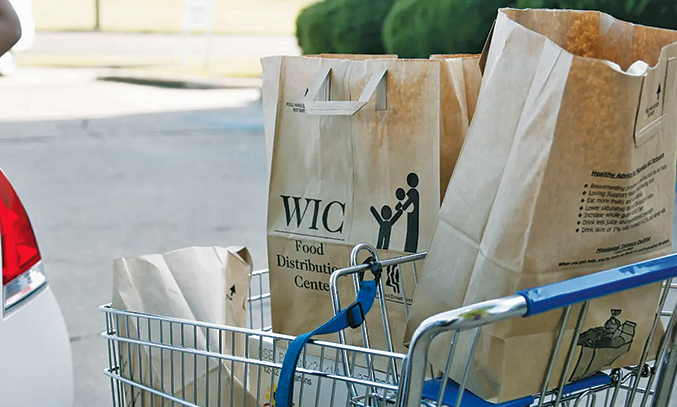WIC funding in North Carolina is falling short, which could result in eligible families being turned away in the future, a new report finds. Rural residents face especially large barriers.
The Center on Budget and Policy Priorities recently released a report showing WIC (Special Supplemental Nutrition Program for Women, Infants, and Children) needs additional funding to avoid turning away eligible families.
“WIC is really important everywhere, but particularly [important] in rural communities,” said Katie Bergh, senior policy analyst at the Center on Budget and Policy Priorities– a progressive think tank.
She said rural residents have historically had some challenges accessing WIC, but policymakers have worked to remove those barriers. One of those barriers was meeting in person, which may have required extensive driving for those living in rural communities, she said.
“You are required under the WIC law to appear in person to enroll and renew your benefits,” Bergh said. “So families often have four to six in-person appointments a year…that can be a really significant hurdle to overcome to get connected to and then stay connected to the program. And it’s particularly an issue in rural communities where you might have to drive a really long distance to get to your closest WIC office.”
In part because of the pandemic and also to break that barrier, states now have the option to provide more flexibility around remote appointments and services. That’s one reason, the Center believes, that there has been an increase in participation in the program.
Because of the increase, the Center estimates more funding will be needed to support the longstanding program.
“We should be building on these successful efforts to reduce participation barriers, not turning away rural families due to a lack of sufficient funding when they otherwise could be newly able to connect with WIC,” Bergh said.
Under the proposed appropriations bill in the House, roughly 5.3 million young children and pregnant, postpartum, and breastfeeding adults would see their food assistance cut or taken away.
The Senate’s higher funding level would require states to turn away an estimated 700,000 to 800,000 postpartum adults and young children, but those who are enrolled in WIC would receive full benefits.
The Center estimates WIC will need $7.2 to $7.3 billion next fiscal year, based on the most recent data. That is $900 million to $1 billion above the President’s budget request and the amount in the Senate’s appropriations bill, and $1.7 billion to $1.8 billion above the level provided in the House bill.
“The key message is that this is the first time in a while that WIC has faced a funding shortfall like this,” Bergh said. “There has been a bipartisan commitment for more than 25 years to make sure that there’s enough money to serve every eligible family who applies. So this is a really unique situation that the program is in at the moment.”

